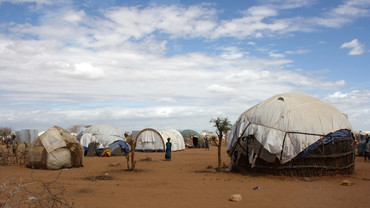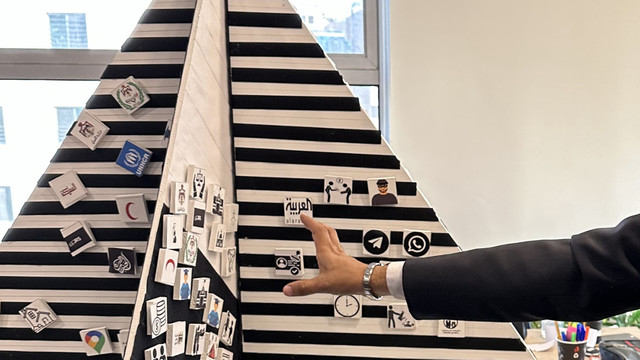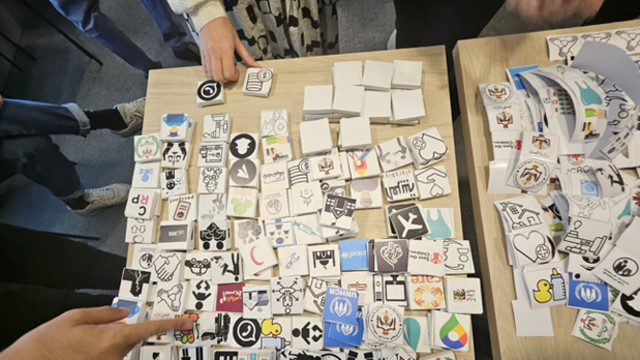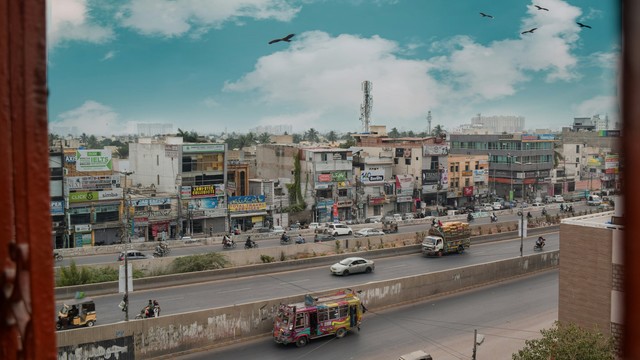Tricky questions and frank discussions: a participatory forum on protracted displacement in Afghanistan
Guest blogger Nassim Majidi draws together three key points emerging from a recent multi-stakeholder forum aimed at developing innovative and inclusive solutions to manage forced displacement in Afghanistan.


The ‘Participatory forum for the protracted displacement in an urban world’ took place in March 2021 in Jalalabad, Afghanistan, and was facilitated by IIED partner Samuel Hall (Photo: copyright Samuel Hall)
Setting up a municipal dialogue is not the usual way of working with officials in Afghanistan – conversations about how to reach durable solutions for displaced people often risk being one-sided.
But last March, provincial and city officials gathered for the ‘Participatory forum for the protracted displacement in an urban world’, facilitated by IIED partner Samuel Hall in Jalalabad, Nangarhar.
Jalalabad – being east of Kabul and close to Pakistan – has taken in most of Afghanistan’s recently displaced people. Nangarhar houses internally displaced people (IDPs) from 17 of the country’s 34 provinces – up to 52% of the country’s total IDP population and 72% of the country’s returnees reside here.
Of a population of just under 40 million, as many as four million Afghans have been displaced by decades of conflict. Afghanistan is one of the most climate-vulnerable countries in the world and its people are increasingly fleeing the impacts.
Coupled with escalating tensions, uncertainty and instability ahead of 11 September – the withdrawal deadline of United States' troops – NGOs, government ministers, UN agencies and other stakeholders are bracing themselves for a surge in displacement.
This context brought together government representatives, communities, academia, the United Nations (UN) and the private sector in the March forum. They spoke openly about the province’s challenges and solutions for displaced people in both camps and urban settings.
Three key points emerged:
1. “If the decision makers go, who do we talk to?” – IDP representative
Participants raised tough questions – for instance around the Afghanistan government’s National Policy for Internally Displaced Persons launched in 2013. Implementation has remained challenging and uneven, with little reporting or results.
The deputy governor acknowledged that the government struggles to cope with new and protracted displacement simultaneously – while responsible, it simply does not have capacity to fight opposition groups and provide sufficient resources to support all those in need.
Government counterparts called on the international community to continue providing vital support on education, safe drinking water and health, acknowledging dependency on the UN and NGOs to meet basic services and needs. That way, the government can focus on structural issues such as town planning.
2. “We want to expand the city – but new informal settlements block our plans”
Urban plans for Jalalabad have been developed − but sticking to them is difficult when informal settlements continue to spring up. On the one hand the government does not want to evict IDPs and returnees from their places of refuge. On the other, resettlement plans are set to provide them with other options – outside the city.
But can the process be fair, and well planned, given that many of the displaced are not registered? Camps provide a convenient way to identify, register and track the displaced; for governments this is much harder in urban settings, and has been notoriously difficult in Jalalabad. The displaced remain invisible and hidden, at times by choice.
A university professor questioned whether an urban setting is the right fit for those without a home. He raised concerns over pollution, lack of recreational areas and sports for young people, and costly basic services – notably the high cost of education for those who want more for their children than the strained public services can provide.
While people used to come to the city to learn skills and work, he explained, Afghans are now leaving the city as it is not meeting expectations: “The love and affection that exists in the countryside is lost in cities”.
3. “We need to work together to get positive results” – civil society calls for collaboration between government and the displaced
A civil society organisation representative raised her concern that, although there has been real progress in providing education across Afghanistan, many displaced people remain illiterate. Women, children and youth need to be literate to be able to work and access opportunities to be self-reliant, and not depend on aid.
In her view, the government needs to work more closely with displaced people – including through public outreach campaigns. “No one is aware of their rights, or the rights of young people and children,” she said.
A business owner, who employees 300 locals and displaced workers in Jalalabad, believes that the urban environment provides an opportunity for lasting change. She has seen returnees from Pakistan contribute their carpet weaving skills, highlighting the potential for job programmes that scale involvement and integration, including for women in female-friendly environments. She, too, called for campaigns to educate people, and educate decision makers on the economic potential of the displaced.
The forum made it clear that participatory planning and bringing together different voices can force actors to ask and address tough questions. Innovative and inclusive solutions to manage forced displacement depend on collaboration – and in a context like Afghanistan, facing so many challenges in the months and years ahead, these conversations are all the more vital.
Samuel Hall is a social enterprise that conducts research, evaluates programmes and designs policies in contexts of migration and displacement.




